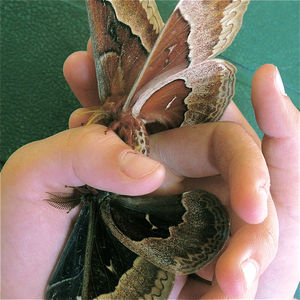I’ve been going through updating the (private) wiki that I use to keep track of worldbuilding, characters and so on for the Gryphon Clerks, and thought I would write a post about how I handle sayings.
There are several valid ways to deal with common sayings in secondary-world fantasy. The most common is just to use familiar ones. This means that a reader like me, who’s alert to these things, may need a bit of extra suspension of disbelief when they spot a saying from the Bible or Shakespeare, or just a common metaphor from our world that isn’t in any way inevitable, but most readers will just slide on past without noticing – or having their attention distracted from the story.
This is what’s sometimes called “Orwellian language”, from an article that George Orwell wrote about the difference between language that’s like a clear window (you see what’s going on through it) and language that’s like a stained-glass window (you look at the window itself).
Personally, I like a bit of stained glass from time to time. I also want to give the feel of a very different, even alien world, unlike our own world, and to freshen up some tired old metaphors by communicating the same thing using a different image.
How I mainly work is that if I find myself about to use a cliche or a conventional phrase, I think about the meaning of it and find another way to say it that makes sense in the setting, that sounds like it could be a cliche among the people I’m writing about. Here are some examples.
- We’re scraping polish off our boots for soup (= times are tough)
- He has stones in his field (= he has a hard row to hoe)
- Gave like a six-teat cow (= sang like a canary)
- We’ll cut down that tree when it’s grown (= cross that bridge when we come to it)
- The redfinch complaining of the chaffinch (= pot calling the kettle black)
- Herding finches (= herding cats)
- No dancing killed the ant (= all work and no play makes Jack a dull boy; from a children’s fable)
- We’ve started out with our harness tangled (= got off on the wrong foot)
- Don’t make a scarecrow and stand in your own field (= don’t keep a dog and bark for yourself)
- More holes than a moth’s lunch
- As drunk as a dockworker
- Three-days-fruit (= drunk, possibly as a dockworker)
- Too swamped to be bothered bailing (= three-days-fruit; an Islands expression)
- Take to something like gnomes to mushrooms (= a duck to water)
- That apple’s already off the tree (= you’d be locking the stable door after the horse has bolted)
- You build the house you’re paid for (= he who pays the piper calls the tune)
- A carnival of fools (= a (metaphorical) circus, a Mickey Mouse outfit)
- I’ll push him down one well and fish him up another (= I’ll kick his ass)
- Catch the fish that’s biting (= strike while the iron’s hot)
- Working like a gnome (= working very hard; some, though by no means all, gnomes consider this expression offensive, as if hard work defines them)
- Like selling gritty melons (= a tough sell)
- Water in front and fire behind (= the carrot and the stick)
- Out of the mud and into the quicksand (= out of the frying pan into the fire)
- Knows where the meat is in the stew (= knows which side his bread’s buttered on; has an eye to the main chance)
- You could have heard a man put on a hat (= could have heard a pin drop)
I’ve also got a couple of gnome sayings:
- You’re talking tonnage to the production foreman (= you’re preaching to the choir)
- We’re two pumps for three (= we’re extremely busy)
Not something that every writer does, or probably should do, but I enjoy playing with language like this, and giving my fellow language nerds occasional moments of delight.
Mike Reeves-McMillan lives in Auckland, New Zealand, the setting of his Auckland Allies contemporary urban fantasy series; and also in his head, where the weather is more reliable, and there are a lot more wizards. He also writes the Gryphon Clerks series (steampunk/magepunk), the Hand of the Trickster series (sword-and-sorcery heist capers), and short stories which have appeared in venues such as Compelling Science Fiction and Cosmic Roots and Eldritch Shores.


Leave a Reply
You must be logged in to post a comment.